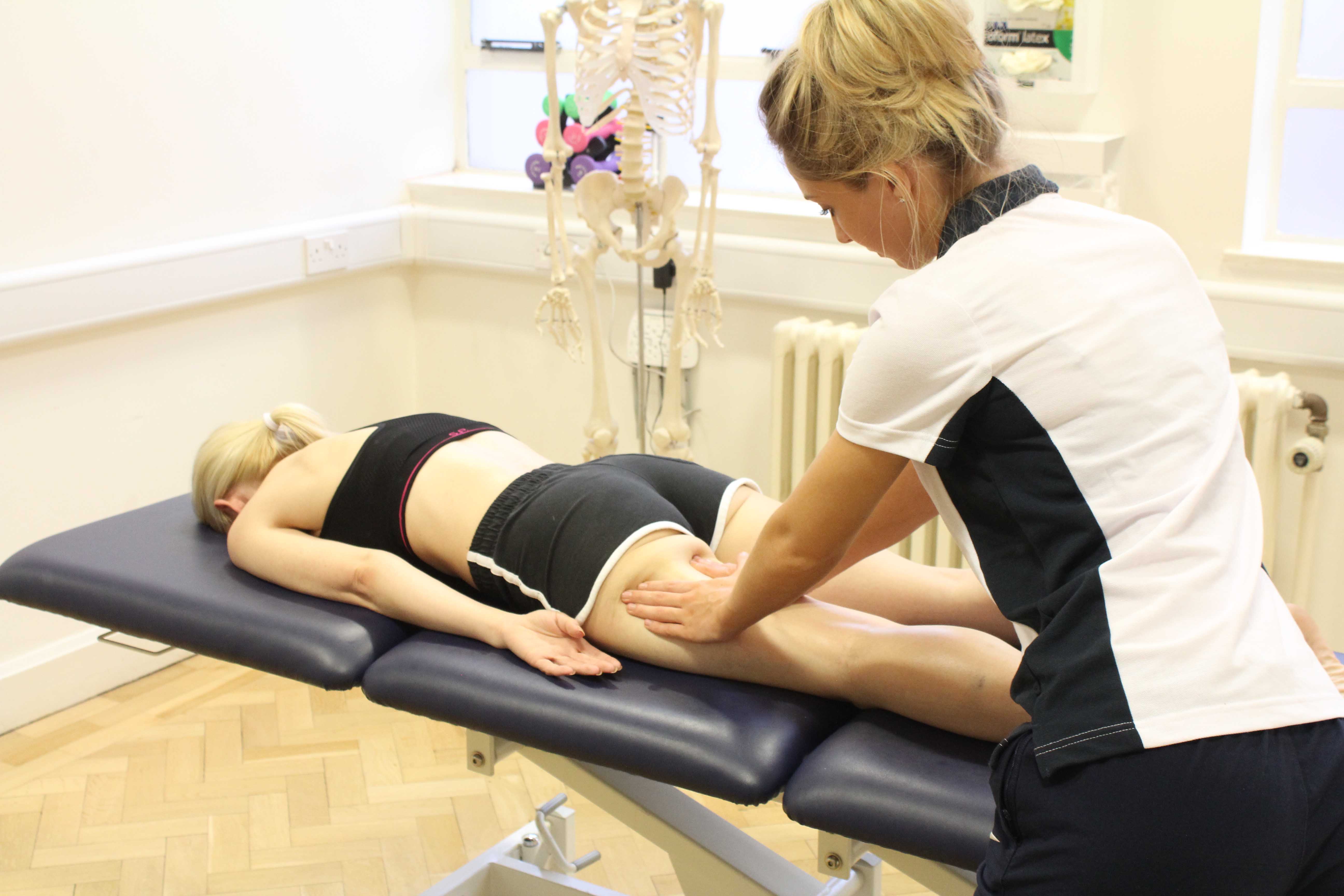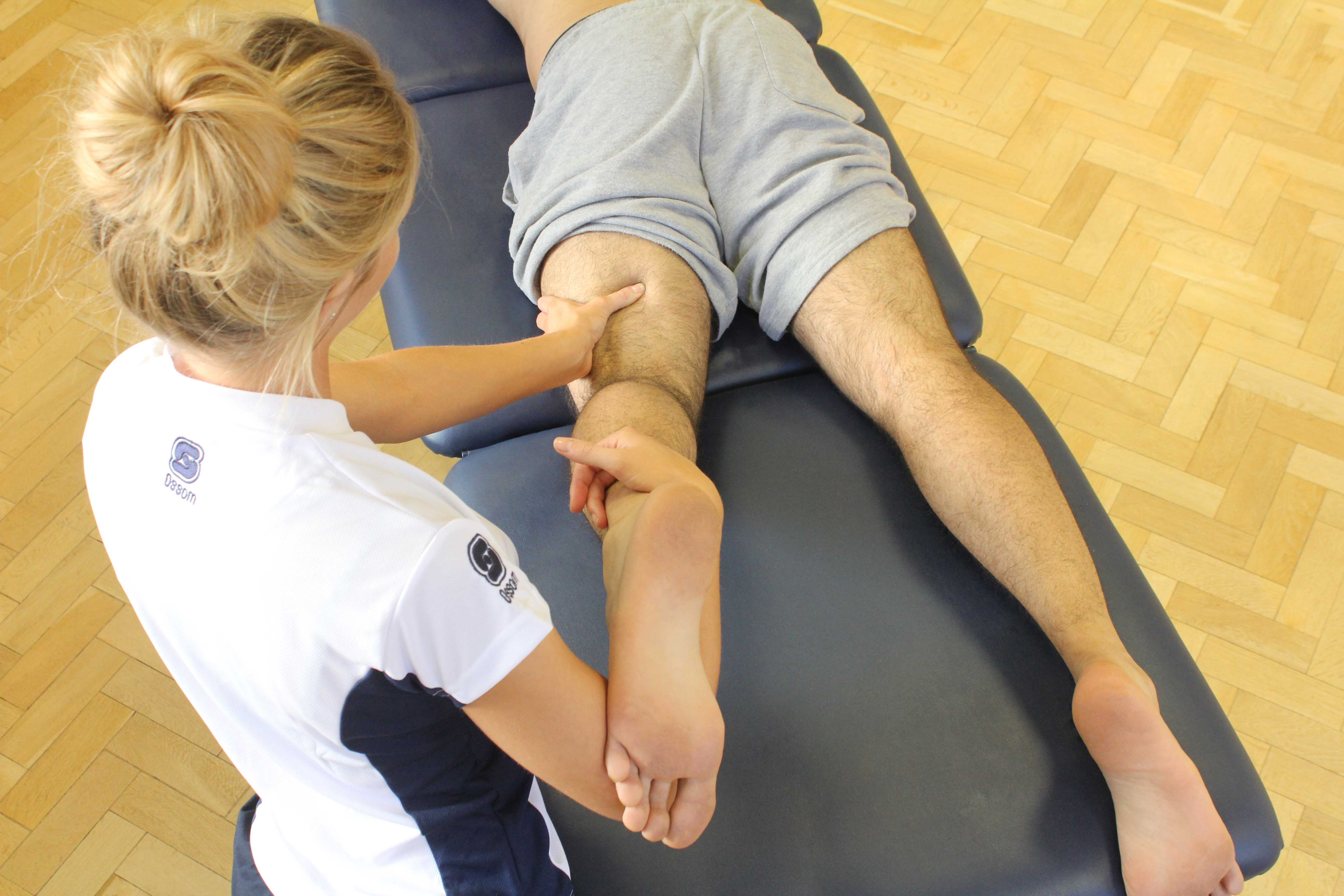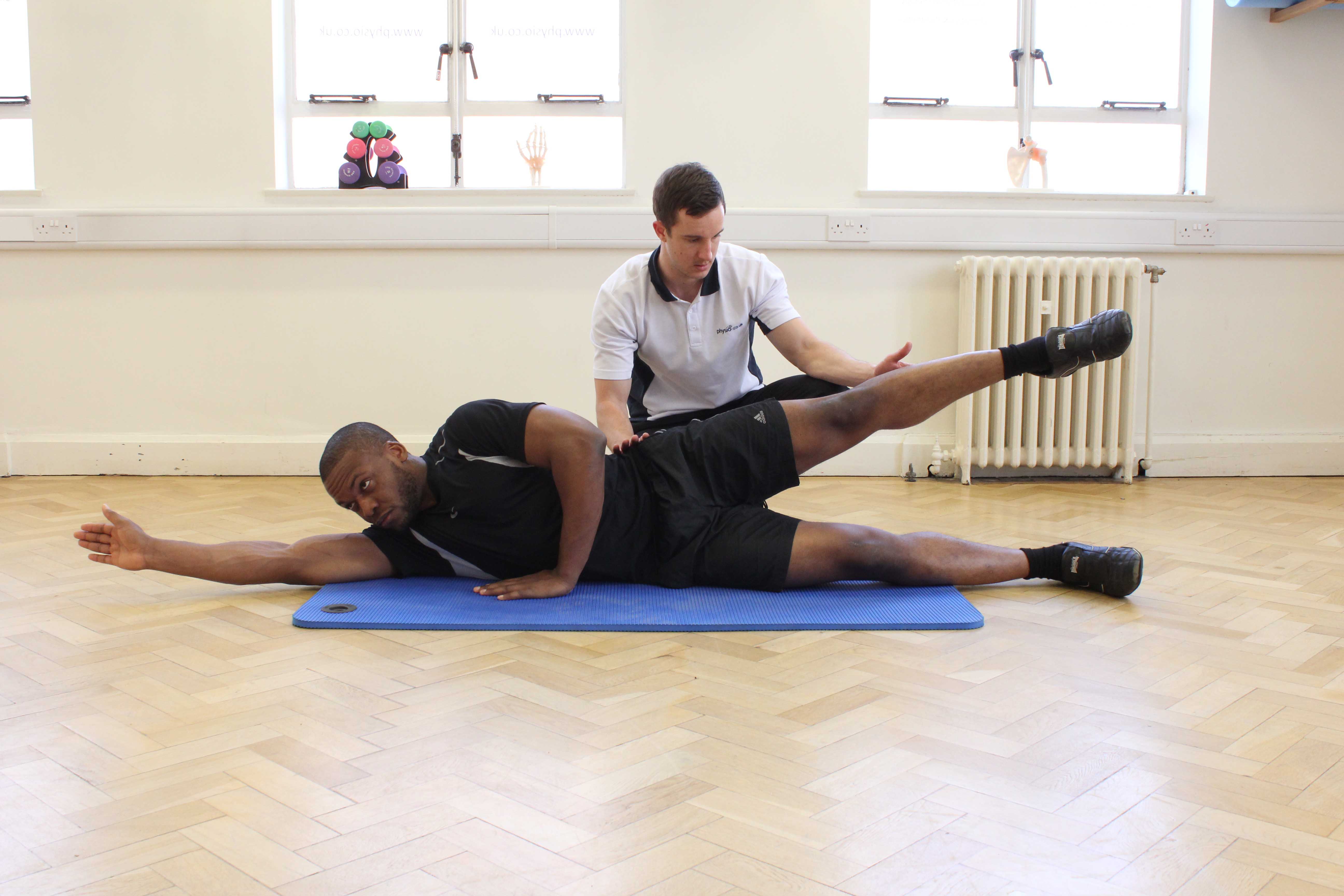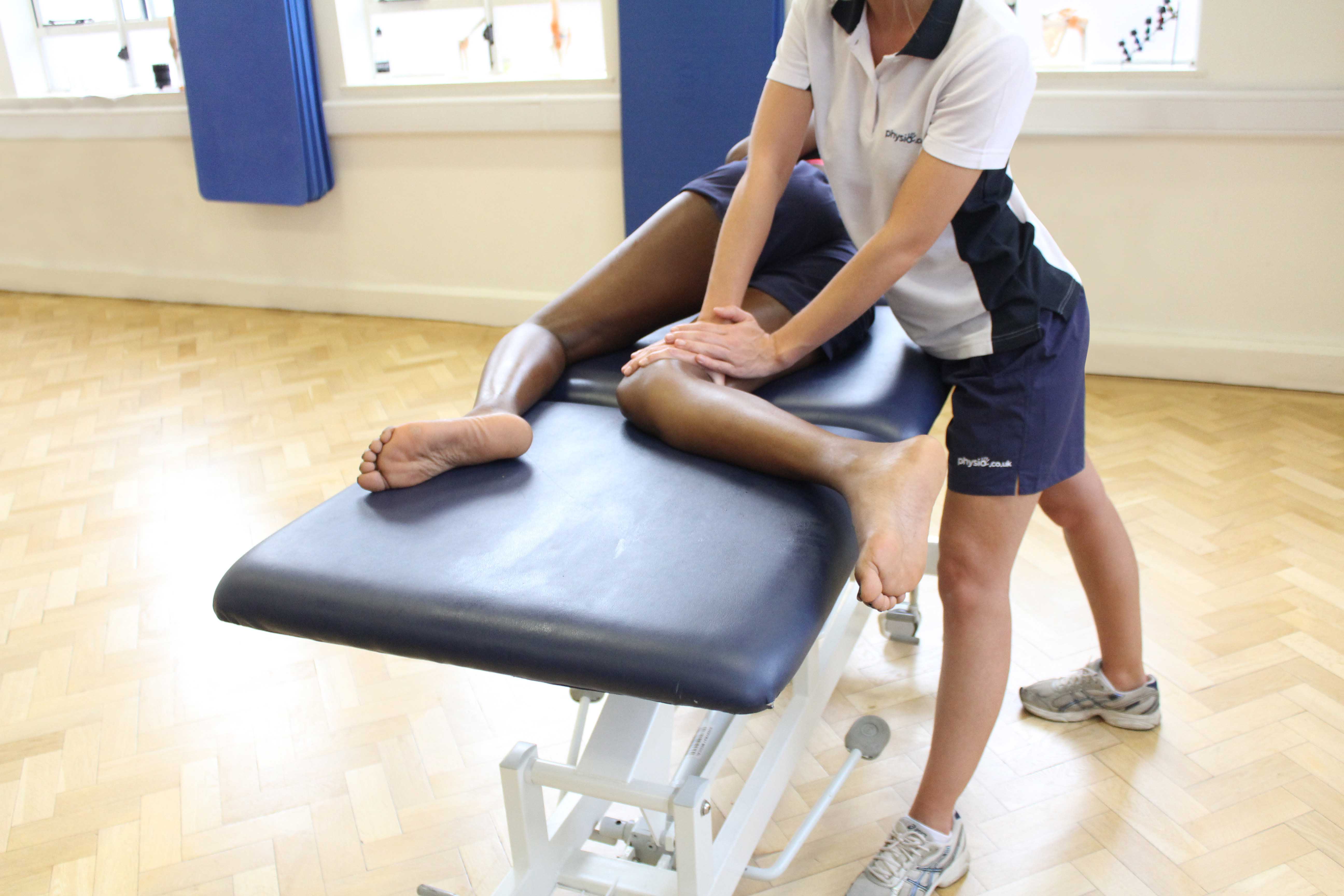What is a pulled hamstring?
A ‘pulled’ hamstring (also known as hamstring tear or hamstring strain) is when the hamstring muscle group, on the back of the thigh, is torn. Physiotherapy is an important treatment for a pulled hamstring.
How does a pulled hamstring happen?
A pulled hamstring usually occurs when the hamstring muscle is contracted in a stretched position. This often occurs during running or sprinting.
 Above: Soft tissue massage of the hamstring muscles by experienced therapist
Above: Soft tissue massage of the hamstring muscles by experienced therapistWhat are the symptoms of a pulled hamstring?
The first sensation felt when a hamstring muscle is torn is sudden pain. This pain is normally felt in the back of the thigh. At the same time you may also experience a ‘tearing’ sensation in the back of your thigh. In minor tears you may be able to continue participating with slight pain. However, as the muscle cools down, your pain may gradually worsen as bleeding and swelling occurs within the injured muscle. Other symptoms include:
 Above: Trigger point massage of the hamstring muscles by an experienced MSK therapist
Above: Trigger point massage of the hamstring muscles by an experienced MSK therapistWhat should I do if I have a pulled hamstring?
The most important time in the initial treatment of a hamstring strain is the first 24–48 hours. This is because the majority of the bleeding and swelling around the injured muscle occurs within this time. To control the amount of swelling and, therefore, limit the degree of damage to the hamstring muscles, the injured leg should be rested and iced. Rest involves limiting the use of the injured leg, sometimes with the use of crutches. Ice should be applied to the injured site for 15–20 minutes every 1–2 hours. Ideally, using crushed ice wrapped in a moist cloth. Whilst completing this you should ensure that you contact your physiotherapist.
 Above: Progressive hip abductor strengthening exercises supervised by specialist MSK therapist
Above: Progressive hip abductor strengthening exercises supervised by specialist MSK therapistPhysiotherapy treatment for a pulled hamstring.
Physiotherapy is very important in the treatment of a pulled hamstring. Initially, your physiotherapist can advise you on the exact tissue/s damaged and the extent of the damage. Following your assessment, your physiotherapist can provide you with advice on how long your injury will take to heal and an appropriate treatment plan can be developed. Treatment plans usually involve a number of treatment techniques, such as manipulations and electrotherapy, to reduce your pain and swelling and enhance the healing of the injured structures. Other treatment includes:
What shouldn’t I do if I have a pulled hamstring?
In the first few days after pulling your hamstring you should not perform activities that increase blood flow to the site of the injury. These include hot showers, hamstring stretches, heat rubs, massage, the consumption of alcohol and excessive use of your leg. These can prolong muscle bleeding and exaggerate swelling resulting in further pain and an extended recovery.
 Above: Soft tissue massage of the hamstring muscles by experienced therapist
Above: Soft tissue massage of the hamstring muscles by experienced therapistCould there be any long-term effects?
With the correct treatment, most hamstring muscle strains heal in up to eight weeks. A proportion of injuries do, however, cause longer-term effects. This is usually if the initial management of the injury is poor or if the muscle damage is significant. When the hamstring muscle is torn significantly, a number of structures in and around the muscle can also be injured, delaying recovery. Poor management of a hamstring injury can lead to a tight or weakened hamstring muscle group that is prone to reinjury when returning to activity.
To arrange a physiotherapy appointment call Physio.co.uk on 0330 088 7800 or book online.

 0330 088 7800
0330 088 7800

































